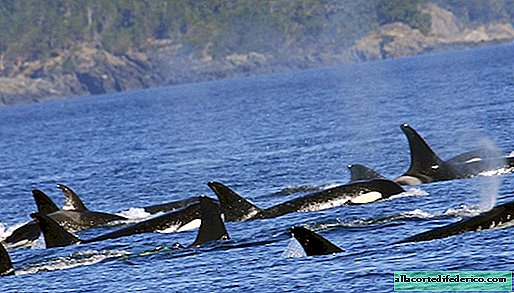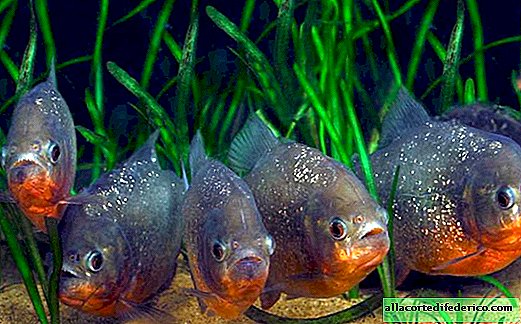The Institute of Grandmothers: among the killer whales and belugas, it is also customary to raise grandchildren
It turns out that not only people have the so-called “institution of grandmothers,” but a similar type of behavior is common among some mammals, when older individuals abandon their own offspring and take care of their grandchildren and great-grandchildren. The biologists have been studying the causes of this unusual behavior for more than a year, and this is what British scientists from the University of Exeter managed to find out.

In the wild, females who have reached reproductive age regularly produce offspring and continue to do so until death. But there are exceptions to this rule, and scientists have already discovered four species of marine mammals whose reproductive behavior differs from the standard behavior of the closest relatives.
Orcas, grind dolphins, belugas and narwhals - these are the inhabitants of the seas, among which an unusual deviation was noticed. Adult females, still quite young and healthy, instead of having to bear and give birth to offspring, refuse to reproduce and begin to help their daughters and granddaughters raise their cubs. These species of mammals live in packs, and in one group are elderly females, their many children and grandchildren.

According to biologists, such behavior of some representatives of the order of toothed whales is quite justified from the point of view of evolution. When older females continue to produce offspring, then it becomes a competitor to her own children and grandchildren living in the same community. And instead of breeding, older females begin to take care of their grandchildren, give them hunting skills and help their daughters protect the younger generation from possible threats. With their help, the survival of the young generation is increased and the safe existence of the entire group is ensured.
Scientists compared the physiological parameters of females of other species of toothed whales with those that act as "grandmothers." It turned out that this behavior is also associated with the structure of reproductive organs. So, for example, by the age of 35-40, female narwhals no longer have full-fledged eggs that can give life and lead to offspring, although the lifespan of these animals is 50-55 years. At the same time, among other toothed whales that do not have an “institution of grandmothers,” such anomalies are not observed, they can bring offspring almost until their death. Scientists do not exclude that soon new species will be discovered that also use a similar strategy to increase the survival of the entire flock.


















